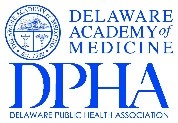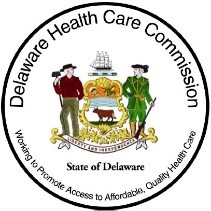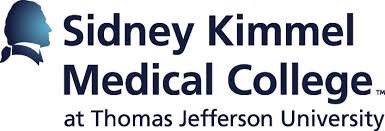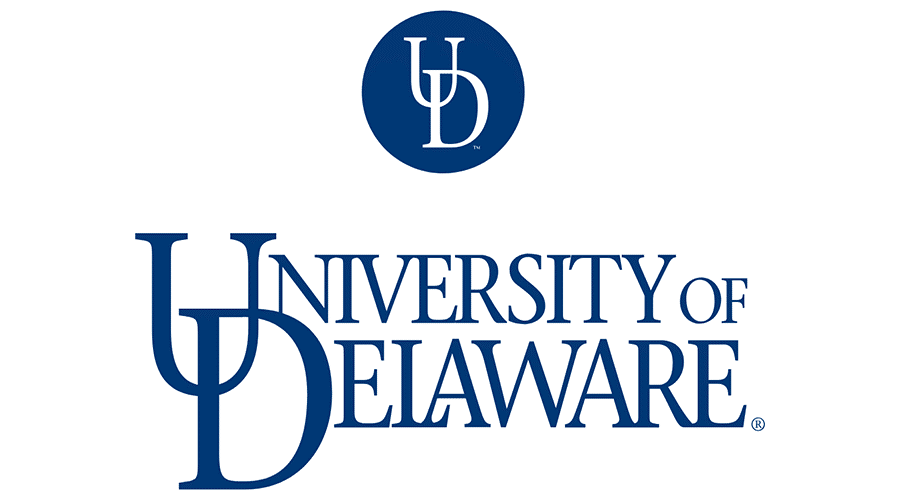Healthcare Pipeline
Working in collaboration with private and non-profit healthcare organizations, Delaware Health Workforce Subcommittee aim to meet challenges of workforce shortages head-on; anticipating critical needs by healthcare specialty and geographic location, assessing specialized competencies and categories of healthcare practitioners, and improving recruitment, deployment, retention, motivation and performance of health workers.
Without an in-state dental or medical school, Delaware is one of four states uniquely positioned through contractual agreements with nationally accredited schools outside of the state, to provide access to high-quality dental and medical education for its residents. Reserving 136 academic seats annually for students with verifiable proof of Delaware-based lineage and/or residency.
The DIDER/DIMER advantage allows Delaware applicants to compete with other applicants from Delaware, instead of tens of thousands of applicants in the national pool.
Delaware Dental School
In 1981, Delaware General Assembly passed an act to create and fund Delaware Institute of Dental Education and Research (DIDER). Delaware Code, Title 16, Chapter 99, Subchapter V task DIDER with the purpose of supporting, encouraging, and promoting dental education, training, and health in Delaware. Under governance of Delaware Health Care Commission, DIDER secured a partnership with Philadelphia’s largest university to educate dental students from Delaware and conduct graduate dental education programs, with the aim of increasing the number of practicing dentists in Delaware.
Temple University, Maurice H. Kornberg School of Dentistry located in Philadelphia, Pennsylvania serves as Delaware’s only dental school; where students acquire clinical experience, develop manual dexterity and build a sound understanding of the business side of dentistry.

Through the partnership with Temple University, a minimum of sixteen (16) student seats are available annually for residents from Delaware; four qualified students are enrolled in each class year.
Delaware Medical School
Delaware General Assembly established Delaware Institute of Medical Education and Research (DIMER) in 1969, as an alternative to a State sponsored medical school. Through statutory regulations specified in Title 16, Chapter 99, Subchapter II, §9905-9908, Delaware Health Care Commission was tasked with administrative oversight of DIMER activities and responsibilities; further enhancing the board’s ability to accomplish goals, promote medical education, and meet Delaware’s healthcare demands.

- Thomas Jefferson University, Sidney Kimmel Medical College
Founded in 1824, Sidney Kimmel Medical College (SKMC), formerly the Jefferson Medical College, offers undergraduate, graduate, and joint medical degree programs to more than 1,000 students every year. Approximately one in four or five students across the United States apply to Sidney Kimmel annually.
In the school’s 50+ year history with DIMER, admissions for 80 students are reserved annually, 20 students in each class year, freshman through senior. In academic year 2018, Sidney Kimmel received 9,907 applications from potential students throughout the country; 79 applicants qualified through the DIMER program, and 25 of those were offered first-year (freshman) admissions.

- Philadelphia College of Osteopathic Medicine
In 1899, Philadelphia’s first school for osteopathy was opened by two doctors, Rev. Mason W. Pressly, DO and Oscar John Snyder, DO. Philadelphia College of Osteopathic Medicine (PCOM) is dedicated to the education of students in medicine, health, and behavioral sciences. The college is committed to the advancement of knowledge and intellectual growth through teaching and research, and to the community through leadership and service.
In 2000, PCOM reinforced DIMER’s quest to expand Delaware’s access to high quality medical education, by co-signing the State’s medical school affiliation agreement and reserving admissions for a total of 20 students annually; 5 first year, 5 second year, 5 third year, and 5 fourth year. Witnessing PCOM’s commitment to Delawareans accessing medical education, in July 2019 Delaware General Assembly expanded the partnership with PCOM and DIMER, by reserving an additional 20 admissions seats for students with Delaware-based residency. A total of 40 admissions seats are available annually to eligible applicants with legal residence in Delaware.

Tuition Assistance, Scholarships, and Practitioner Incentive Programs
-
 Delaware Academy of Medicine / Delaware Public Health Association – interest free loan and repayment programs are available to students. The loan repayment period starts one year after the graduation. Repayment plans are only available to students who have not received loans from the Academy prior to 2016.
Delaware Academy of Medicine / Delaware Public Health Association – interest free loan and repayment programs are available to students. The loan repayment period starts one year after the graduation. Repayment plans are only available to students who have not received loans from the Academy prior to 2016. -
 Delaware Community Foundation – students from Delaware are encouraged to apply for the following scholarships: Beekhuis Scholarship, Margaret L. Richey Scholarship, Margaret A. Stafford Nursing Scholarship, Eleanor B. and Henry H. Stroud, M.D. Memorial Scholarship, Mark B. Holzman Scholarship, etc.
Delaware Community Foundation – students from Delaware are encouraged to apply for the following scholarships: Beekhuis Scholarship, Margaret L. Richey Scholarship, Margaret A. Stafford Nursing Scholarship, Eleanor B. and Henry H. Stroud, M.D. Memorial Scholarship, Mark B. Holzman Scholarship, etc.  Delaware State University – tuition, fees, grants, loans, scholarships and work study employment.
Delaware State University – tuition, fees, grants, loans, scholarships and work study employment. Delaware Technical and Community College – tuition and fees.
Delaware Technical and Community College – tuition and fees.
 State of Delaware, Department of Education – the Scholarship Incentive Program (ScIP) is designed for full-time students enrolled in an undergraduate or graduate degree program not offered by universities or colleges in Delaware.
State of Delaware, Department of Education – the Scholarship Incentive Program (ScIP) is designed for full-time students enrolled in an undergraduate or graduate degree program not offered by universities or colleges in Delaware.
- Federal Student Aid – free application for Federal Student Aid (FSFSA).
- Undergraduate Financial Scholarships – Nursing Incentive Program and general scholarship awards.
- Graduate Financial Scholarships – Optometry Incentive Program and Speech/Language Pathologist Incentive Program.
- Delaware Student Success, Scholarship Compendium – this is a guide for Delaware students looking for scholarships and programs to offset the cost of college. Scholarships are available for all students, not just for those who receive good grades.
 State of Delaware / Delaware Institute of Medical Education and Research (DIMER) – annually, Delaware allocates $280,200 in tuition assistance for students enrolled in the DIMER program. Awarded amounts vary depending on the number of students enrolled and other weighted qualitative and quantitative criteria determined through the awarding school. On average students may be eligible for $500 – $1,500+ per semester.
State of Delaware / Delaware Institute of Medical Education and Research (DIMER) – annually, Delaware allocates $280,200 in tuition assistance for students enrolled in the DIMER program. Awarded amounts vary depending on the number of students enrolled and other weighted qualitative and quantitative criteria determined through the awarding school. On average students may be eligible for $500 – $1,500+ per semester. State of Delaware / Delaware State Loan Repayment Program – post-Residency, physicians may be eligible to apply for educational loan repayments up to $200,000 over a four-year period.
State of Delaware / Delaware State Loan Repayment Program – post-Residency, physicians may be eligible to apply for educational loan repayments up to $200,000 over a four-year period. -
 Thomas Jefferson University, Sidney Kimmel Medical College
Thomas Jefferson University, Sidney Kimmel Medical College -
 University of Delaware – general tuition and scholarship information.
University of Delaware – general tuition and scholarship information.
-
 Wesley College – tuition and fees
Wesley College – tuition and fees
- Scholarships – Edith M. Allen Scholarship, Henry R. Kendall Leadership Development Scholarship, Hispanic Leadership Development Fund, etc.
- Grants
 Wilmington University – tuition and fees
Wilmington University – tuition and fees



